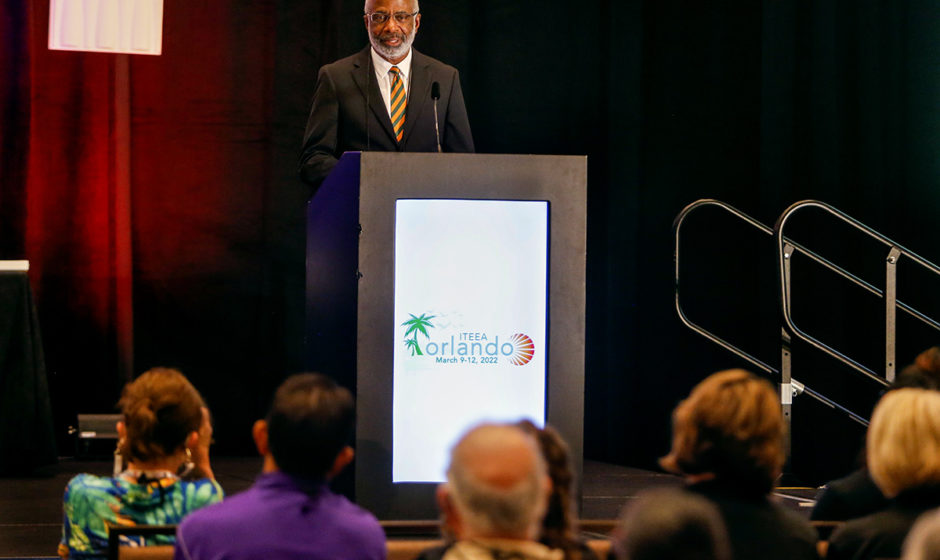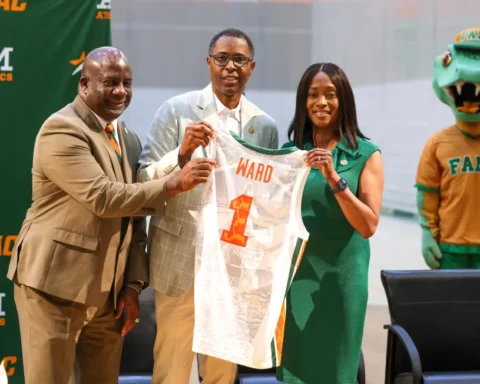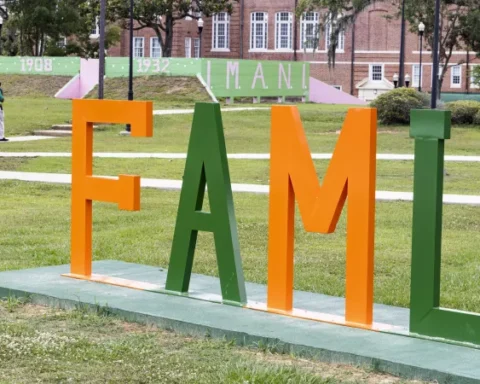By Andrew Skerritt
Florida A&M University President Larry Robinson, Ph.D., said FAMU and other Historically Black Schools and Universities (HBCUs) and Minority Serving Institutions (MSIs) have answers to the persistent disparity of African Americans, Hispanics and other minorities in science, technology, engineering and math (STEM) fields.
Robinson was delivering the opening keynote address on the first day of the International Technology and Engineering Educators Association Conference in Orlando, Fla., Thursday. His topic: “Standards for Technological and Engineering Literacy: The Role of Technology and Engineering in STEM Education—Keys to Success!”
“We have work to do, but this gathering is a major step forward. Perhaps we can learn more from the nation’s HBCUs and MSIs,” Robinson said. “Perhaps we have spent too much time and made too many investments in developing standards in the wrong matrices. May be the answers and solutions, in the case of Florida A&M University have been staring us in the face for over 134 years. We believe in and invest in the potential of every student. We expect them to succeed and believe that the world will not be right without them in it, making sound contributions to STEM and everything else they choose to pursue.”
So how could a scientific literacy standard be uniformly applied in the presence of such an obvious disparity, Robinson asked his audience of technology and engineering educators from all across the country.
Partnerships & Collaborations
“As we look closer at STEM education, there have been some improvements in the STEM workforce regarding women and underrepresented populations, but there’s still a long way to go,” Robinson said. “At FAMU, we are aware of this disparity and are working to meet this challenge through STEM K-12 teacher education, outreach and recruitment in STEM fields and collaboration with STEM stakeholders within government.”
FAMU has partnerships and collaborations with federal entities such as the U.S. Department of Defense, NASA, NOAA, Energy Department and U.S. Department of Agriculture, and private sector partners such as DOW, Chevron, Microsoft, Google, Lockheed-Martin, and a host of others.
“This is very important work as it opens the doors to new opportunities,” said Robinson, who acknowledged the efforts of College of Education Dean Allyson Watson, Ph.D. “As a University, we are ‘all in’ addressing new outcomes and possibilities in STEM.”
Watson said the ITEEA Conference, which features a number of booths with students displaying robotics, is important for the future direction of education.
“We have to bring critical thinking skills. We have to bring advanced technology, and we have to bring hands-on learning and experiential practices to our classrooms every day,” said Watson, who led a delegation of 10 COE and FAMU DRS faculty, students, and staff. COE is a co-sponsor of the conference, and Secondary Education, Technology Education and Foundations Professor David W. White, Ph.D., is an ITEEA committee member.
“As dean of the College of Education, it’s really important that I’m here, that President Robinson, the leader of our institution, is here. It shows the world this is where education is going from K-12 and beyond into the Ph.D., and then, ultimately, into the workforce,” Watson continued. “I want our education majors to graduate and be fully equipped to pivot in any educational learning environment and then also to be able to enrich their students when they get into the classroom.”





